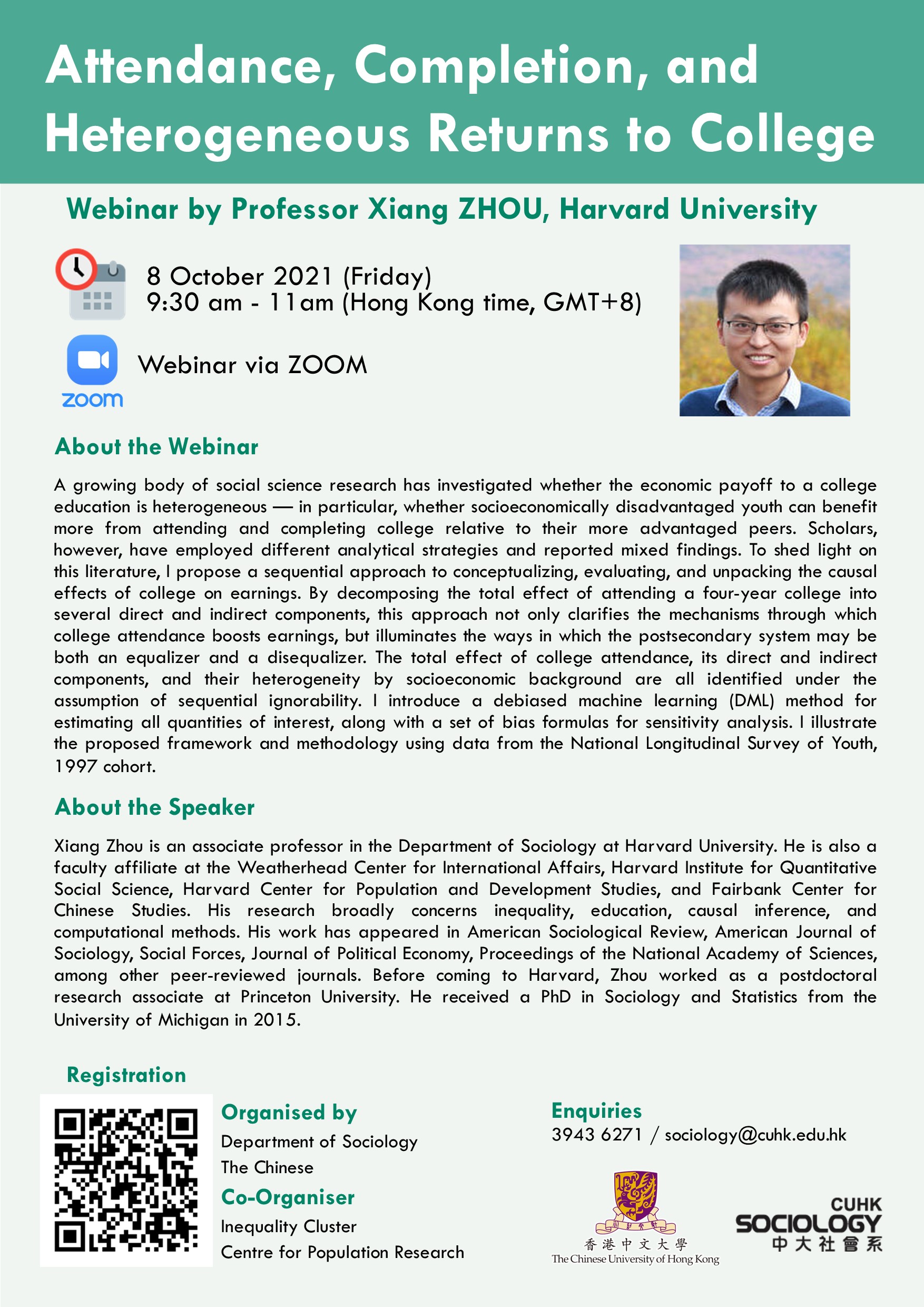
sociology@cuhk.edu.hk
About the Webinar
A growing body of social science research has investigated whether the economic payoff to a college education is heterogeneous — in particular, whether socioeconomically disadvantaged youth can benefit more from attending and completing college relative to their more advantaged peers. Scholars, however, have employed different analytical strategies and reported mixed findings. To shed light on this literature, I propose a sequential approach to conceptualizing, evaluating, and unpacking the causal effects of college on earnings. By decomposing the total effect of attending a four-year college into several direct and indirect components, this approach not only clarifies the mechanisms through which college attendance boosts earnings, but illuminates the ways in which the postsecondary system may be both an equalizer and a disequalizer. The total effect of college attendance, its direct and indirect components, and their heterogeneity by socioeconomic background are all identified under the assumption of sequential ignorability. I introduce a debiased machine learning (DML) method for estimating all quantities of interest, along with a set of bias formulas for sensitivity analysis. I illustrate the proposed framework and methodology using data from the National Longitudinal Survey of Youth, 1997 cohort.
About the Speaker
Xiang Zhou is an associate professor in the Department of Sociology at Harvard University. He is also a faculty affiliate at the Weatherhead Center for International Affairs, Harvard Institute for Quantitative Social Science, Harvard Center for Population and Development Studies, and Fairbank Center for Chinese Studies. His research broadly concerns inequality, education, causal inference, and computational methods. His work has appeared in American Sociological Review, American Journal of Sociology, Social Forces, Journal of Political Economy, Proceedings of the National Academy of Sciences, among other peer-reviewed journals. Before coming to Harvard, Zhou worked as a postdoctoral research associate at Princeton University. He received a PhD in Sociology and Statistics from the University of Michigan in 2015.

